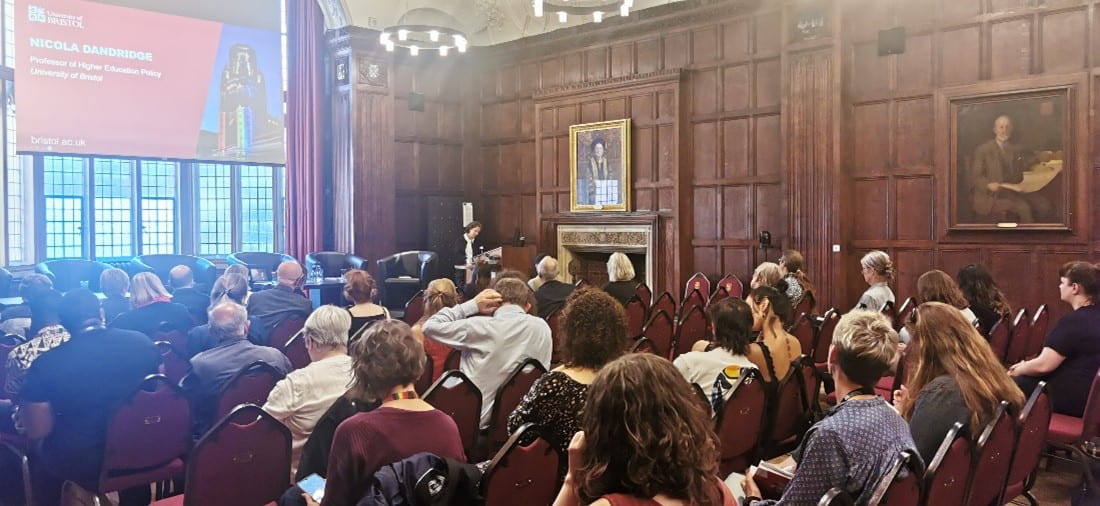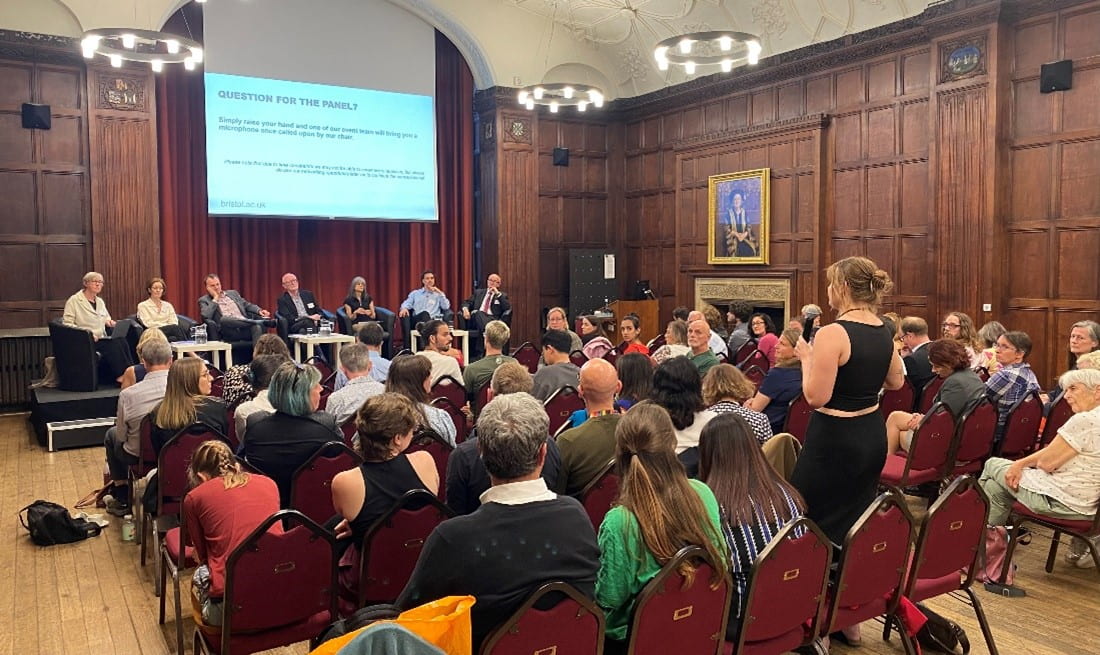By Marcus Munafò
At the start of the summer, we held the second and third events in our Future of Universities series. The higher education landscape has seen significant changes over the past decade, influenced by factors such as increasing tuition fees, rising costs of living and the COVID-19 pandemic. Our events delved into what teaching and the role of universities will look like in 2033.
Read on for a summary of the discussions from each event and watch our recordings to hear the full discussions!
The Future of Teaching
Chaired by Tansy Jessop (Pro Vice-Chancellor for Education, University of Bristol), this event featured experts from across the teaching system in higher education. We were delighted to be joined by Nicola Dandridge (Professor of Practice in Higher Education Policy, previously Chief Executive, Office for Students, 2017-22), who gave an excellent talk on how our approach to teaching should be molded around the students of the future rather than expecting students to mold themselves around a predetermined model.
She considered external factors that will influence the world over the next ten years, including a need for higher level skills, economic and social pressures , and climate emergency that will affect what students choose to study and how we deliver teaching. With a recent UCAS report predicting huge increases in university applicants over the next decade, this is a particularly pertinent time to have these discussions! 
We then opened up the discussion to our panel for an interactive Q+A session with our audience. As you can expect from over an hour of expert discussions, we covered a lot! Some of the key points highlighted by our panel included;
- The need for universities to give students the skills, knowledge and orientation to deal with the complexity and uncertainty of the modern world, and actively involving them in the learning experience rather than creating a system where they are passively receiving content.
- The role of higher education institutions as diverse learning environments, whether the “jack of all trades” approach works in an increasingly competitive environment and if gaining a degree is more than a box ticking exercise on the employability conveyor belt.
- Conceptualising university education as a lifelong set of activities rather than a coming-of-age process for 18–21-year-olds
- Recognising the challenges and pressures faced by teachers at universities and balancing the student and teacher requirements to ensure as positive an outcome possible for all involved including students, graduate teachers and technical staff
Watch Nicola’s talk and the full discussion here;
The Future Role of Universities in Society
The final event in our series focused on higher education’s role as a policy influencer and an enabler of the implementation of future technologies. We were joined by experts at the key decision-making points of higher education policy including Matt Western (Labour MP for Warwick and Leamington, Shadow Minister for Education) and Vivienne Stern (Chief Executive, Universities UK) alongside colleagues from across the university landscape.

This event naturally resulted in a broader discussion than our previous two events – it would be impossible to talk about the role of universities without discussing research and teaching, after all! Therefore, we aimed to debate how the challenges and opportunities of the framework that higher education institutions operate in affect (and will affect in the future) our ability to both pioneer research and deliver a positive student experience.
Key discussion points raised by our panel and audience members included;
- The loss of public trust in higher education institutions and how we regain that trust and sustainably grow the sector.
- The increasing need to support PhD students and early career researchers as society faces further complex challenges which will require continued innovativation
- A need for universities to push ourselves to further help employees and students develop skillsets for the changing world. Currently, too much of the onus to do this is on the individual.
- As institutions, our responsibility is to champion the higher education sector and safeguard its future amidst public and government pressures while reconciling this with maintaining positive relations and recognising where the majority of university funding comes from – we can do this better.
Watch the full discussion here;
I’d like to take a moment to thank all our attendees over the course of these events, our panelists and chairs, and the Research Culture team for facilitating such in-depth discussions. We’re currently hard at work on allocating our 2024 Research Culture funding and organising the 2023-24 academic year’s events, and we look forward to sharing more information in due course!
